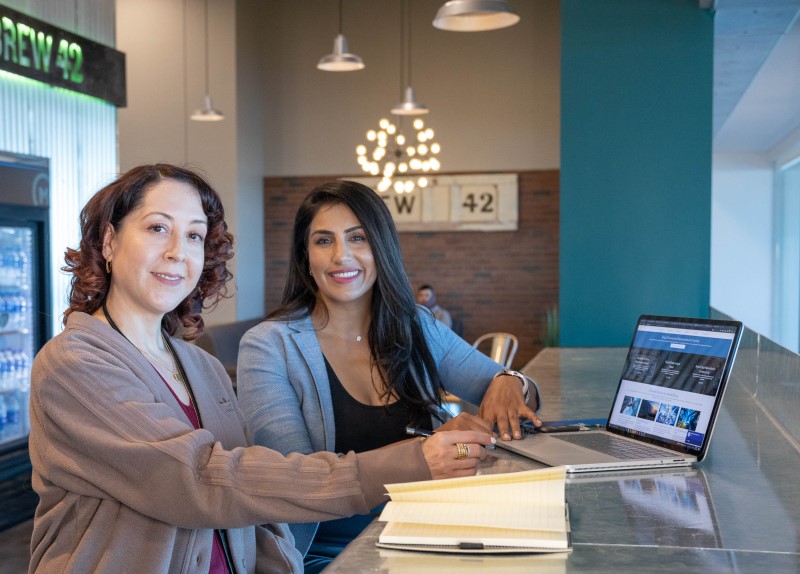Interviewing at Intel
Welcome to our interview preparation guide for Intel. Looking for a job can be both exciting and overwhelming, but we're here to help. Get ready to ace your interview and impress your interviewer through our valuable insights, practical advice, and helpful resources.
Prepare
The Key to Success
Immersing yourself in everything Intel and your desired area is critical to preparing yourself for your interview.
Below are some tips to help you get started:

Explore
Use Intel.com and other reputable sources to do some research on industry standards and emerging technologies, as well as gain insights into the challenges and opportunities Intel is currently facing.
Dive deeper into the qualifications, requirements, and responsibilities in the Job Description (JD) you've applied for. Identify key reasons why you would be an excellent fit for the role.
Prepare Questions
Create a thoughtful list of questions to ask your interviewer about the role, team dynamics, Intel culture, and any relevant aspects to your potential contribution to the role.
Get Ready
Prepare to answer questions on your competencies, strengths, weaknesses, and experiences. Use specific examples to illustrate your points effectively.
Make sure to highlight how your knowledge, skill, experience, and passion aligns with Intel’s requirements and make you a standout candidate.
Craft your story
Share Your Personal "Elevator Pitch"
Take the opportunity to answer “Tell me about yourself” by highlighting your unique qualifications and briefly articulate why you are the most qualified candidate for the role.
Use the S.E.A.T framework to help you structure your response. It’s best to keep this within 2-5 minutes and align it with Intel values.

"S" – Skills
Elaborate how your key skills have been honed through your experience and how they align with the job requirements.
"E" – Experience or Educational Qualifications
Share notable experiences and/or educational qualifications that demonstrate the expertise you can bring to the position.
"A" – Achievements
Briefly share key accomplishments in your working experience or any life event that highlights your abilities and makes you stand out.
"T" – Type of Person
Emphasize the personal values, working style, and professional ethics that line up to Intel values and how you can contribute to the role.
Powerful Storytelling
Ace Your Behavioral Interview
The Behavioral interviewing evaluates your behavior in different scenarios as a reliable prediction of your future performance.
The STAR interview method is a powerful technique to structure your responses to behavioral interview questions.
Use the STAR method to craft your stories on your experiences with concrete examples of successes to showcase your capabilities and your potential success in your future role.
Tip: When using the STAR method, keep the focus on you as the main actor in your answer i.e. “I did…” rather than “We did…”

“S” – Situation
Clearly articulate the context where you demonstrated your competence in a specific event, project, or challenge you faced.
“T” – Task
Briefly describe your tasks, responsibilities, and the goal you were working toward.
“A” – Action
Demonstrate how you responded specifically in your role to create impact.
“R” – Result
Define the outcome. What happened? What was learned, gained, or changed as a result?
STAR Method Sample Question and Answer
Example of behavioral question: Tell me about a time when you generated a creative idea to solve a problem
or improve a work method.
“S” – Situation
As a Quality Engineer with XYZ Corporation, I was assigned to qualify a new hardware design before sending it to production.
”T” – Task
During the inspection, I noticed a design flaw that may potentially lead to a safety hazard.
“A’”– Action
I collaborated with my team to troubleshoot all aspects of the design, determine the root cause of the problem, and propose a new solution. This new solution also included benchmarking research from current trends and technologies while ensuring all safety protocols were met.
“R” – Result
My proposal was adopted and final product met all specifications. It helped to prevent a loss of company revenue and reputation, and avoided a potential safety incident.
Practice Questions
Undergraduate/Entry-Level
Whether you’re about to graduate or want to change careers, the STAR method will help you prepare for your big day.
Use practice questions to craft 3-5 STAR stories in advance. Preparing examples ahead of time will help you frame your achievements and assist with memory during your interview.

Sample Question 1
Describe a time when you worked on a project as part of a team where there was a difference of opinion causing delays. How were you able to find a solution?
Sample Question 2
When did you last coordinate your work with others in a team project? What was your most successful contribution?
Sample Question 3
It is sometimes more effective to learn from others than to try to solve challenges in isolation. Share a problem-solving experience in which you applied lessons you learned from others who encountered similar problems or challenges.
Sample Question 4
What are you strongest in, accuracy or speed? Please explain with an example based on your experience.
Practice Questions
Graduate-Level/Experienced
You’re experienced and know how to prepare, and the STAR method can help you deliver subtle, compelling, and powerful responses in your interview.

Sample Question 1
Tell me about a time when you had to gather data and diagnose the causes of a problem before taking action. How did you identify what information was needed and how did you obtain it?
Sample Question 2
Describe a situation in which you independently improved upon the quality of your processes, products, or services — either in school, work, and/or prior internships. How did you recognize the need for improvement in the first place?
Sample Question 3
How have you handled sensitive information in the past? What strategies have you used to maintain confidentiality?
Sample Question 4
Describe a time when you anticipated problems and developed contingency plans to deal with those problems.
Helpful Links
At Intel, we strive to foster a foundation where our employees can be themselves
Be an enduring champion in an ever-changing industry
Intel shapes the future of technology
Intel's vision for the future
Why work at Intel?
Intel’s Software Vision
Join Our Talent Community
Be the first to hear about what's happening at Intel! Sign up to receive the latest news and updates.

